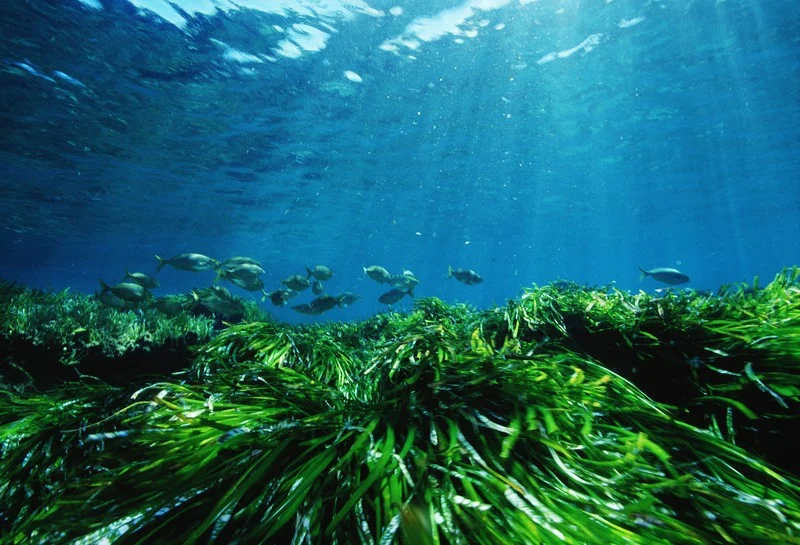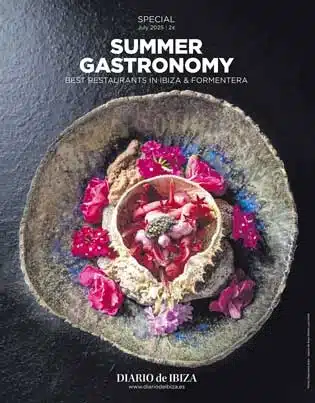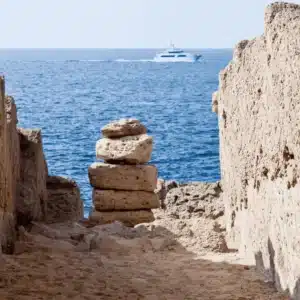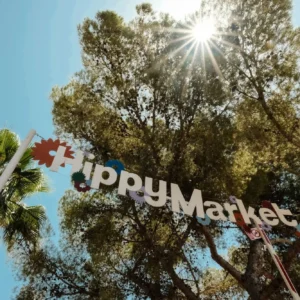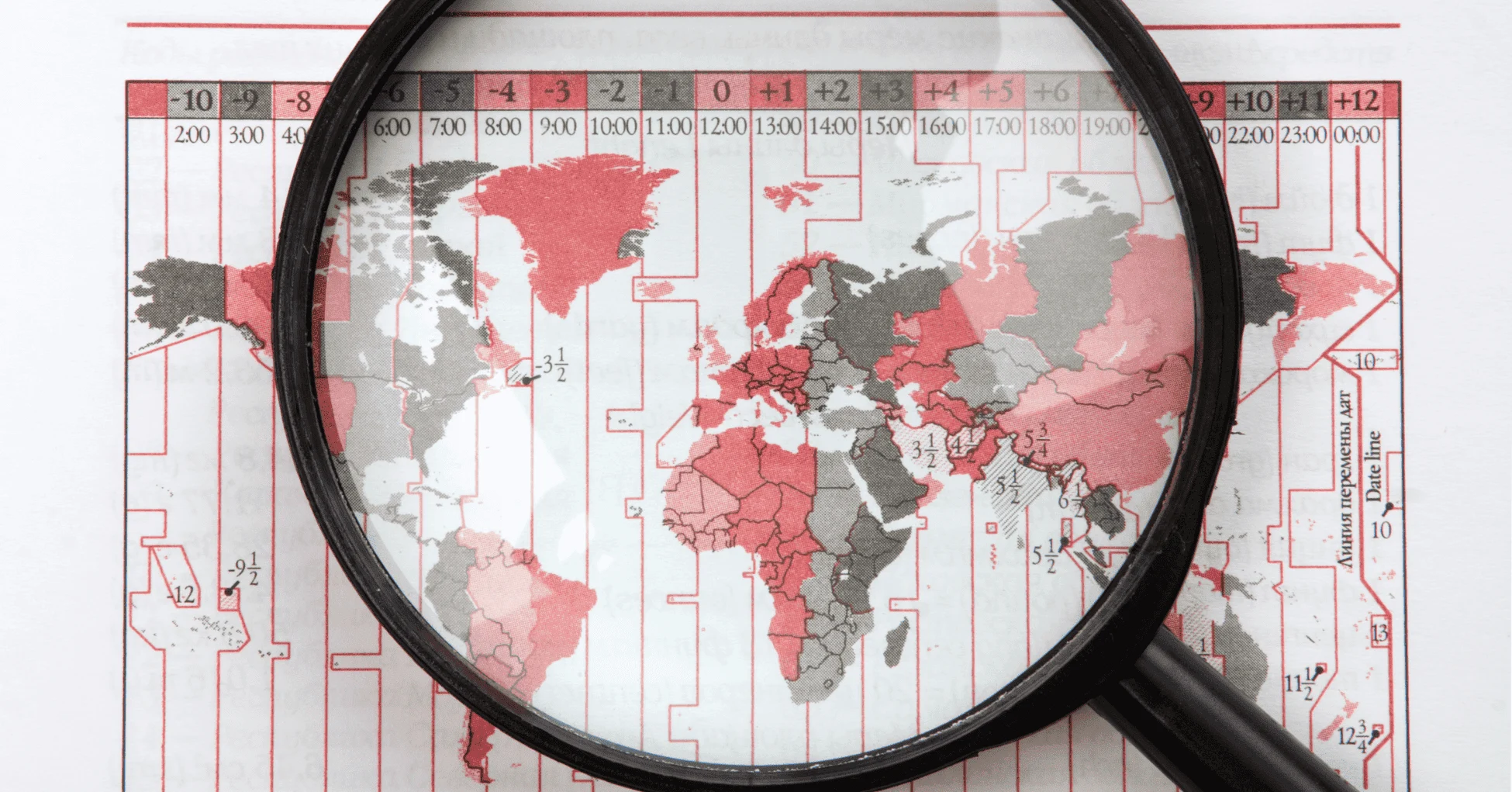As you arrive on the shores of Ibiza or Formentera, drawn by the promise of clear turquoise waters and pristine beaches, there is a silent, hidden hero working just beneath the surface. Its name is posidonia oceánica, a marine plant that plays a vital role in preserving the beauty and health of the Mediterranean Sea. And right now, it is in danger.
The Ona Futura Foundation has issued a stark warning this summer: the Mediterranean is facing an ecological crisis. Rising sea temperatures, the spread of toxic algae, invasive species, and unprecedented tourist pressure are pushing the ecosystem to its limits. Among the most threatened elements is the posidonia oceánica — known as the ‘lung of the Mediterranean’ — which is suffering damage so severe that it can be seen from the air.
What is posidonia oceánica?
Despite its appearance, posidonia is not seaweed, it is a flowering marine plant that grows in vast underwater meadows. These meadows provide food and shelter for countless marine species, stabilise the seabed, prevent coastal erosion, and produce oxygen, up to 20 litres per square metre per day. The presence of posidonia is one of the main reasons the waters around Ibiza and Formentera are so transparent and full of life.
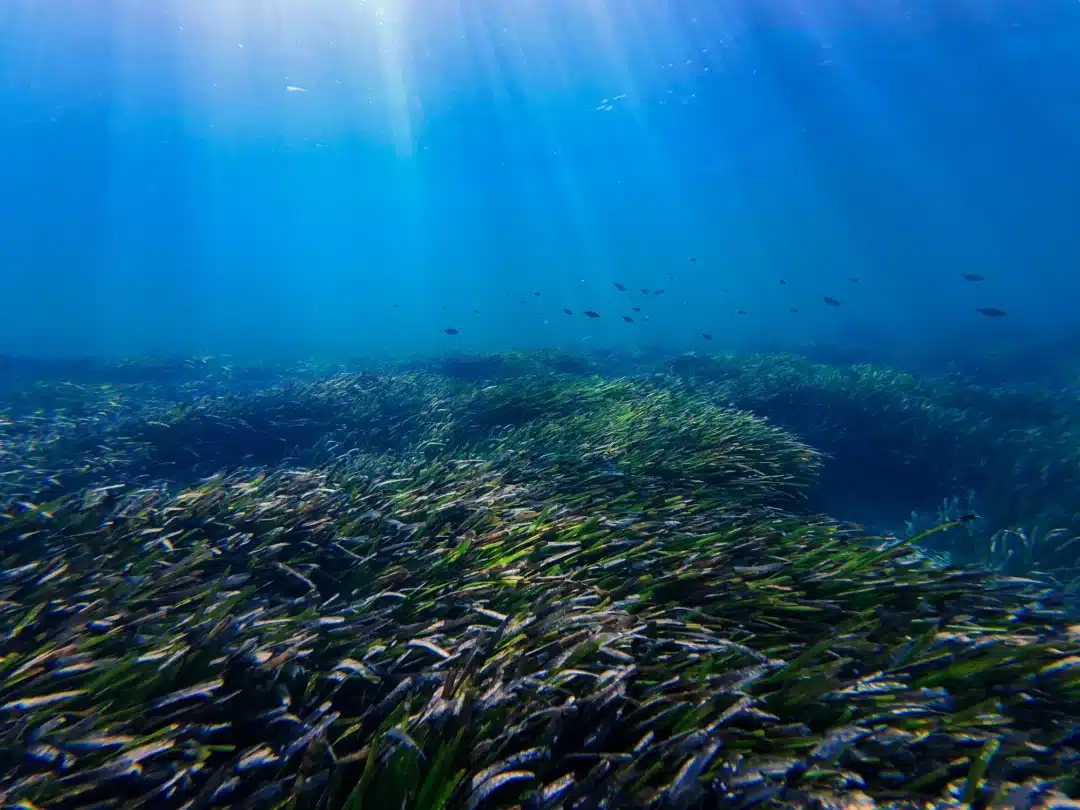
Some meadows of posidonia found in the Balearic Islands are over 100,000 years old, making them among the oldest living organisms on Earth. UNESCO even declared the posidonia meadows of Ibiza a World Heritage Site due to their ecological value.
Why is it under threat?
This summer, Ona Futura’s network of underwater sensors has recorded sea temperatures up to four degrees Celsius above the seasonal average. This thermal stress affects marine life across the board, reducing oxygen levels in the water, altering currents, and increasing the presence of pollutants. Already, there have been reports of mass die-offs among corals, sponges, and molluscs, while toxic microalgae such as Ostreopsis ovata are becoming more frequent, posing health risks to swimmers.
But one of the greatest threats comes from above: anchoring boats. Every day, thousands of recreational vessels drop anchor directly onto posidonia meadows, tearing up the delicate plant and leaving bald patches on the seabed. In popular areas like Ibiza and Formentera, the damage is visible even from aerial photographs.
Add to this the pressure of mass tourism — with more than eight million visitors expected in the Balearic Islands alone this summer — and the scale of the problem becomes undeniable. Waste generation, water consumption, and overburdened infrastructure further contribute to the environmental stress.
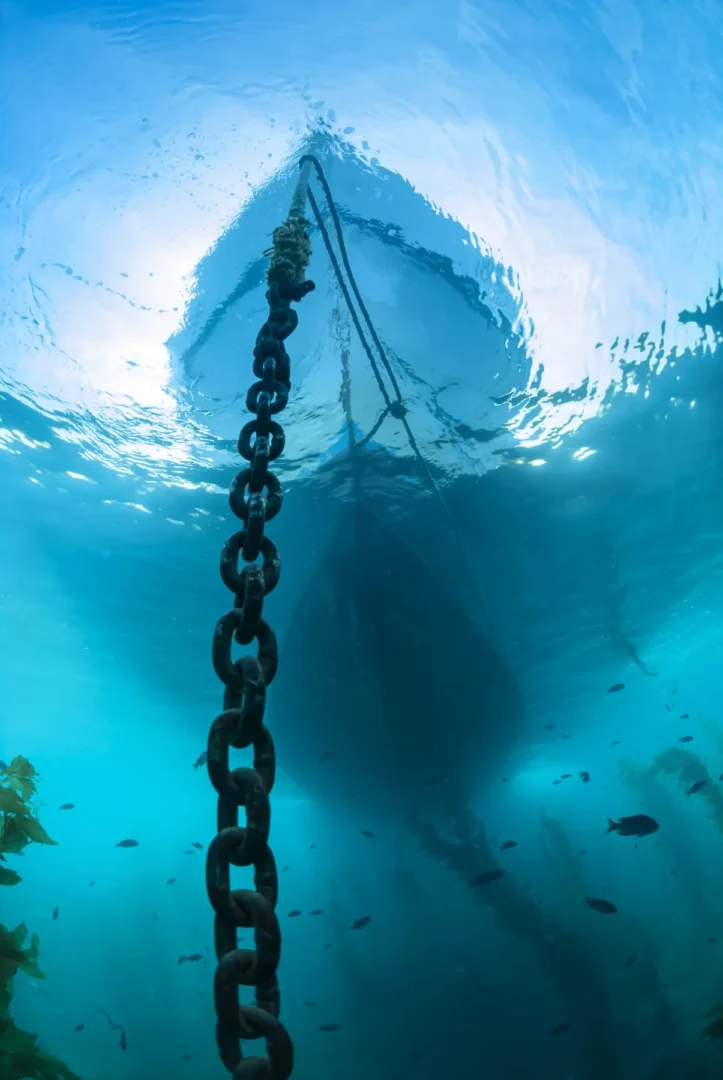
How is it being protected?
The Ona Futura Foundation is working on several fronts to restore and protect posidonia. Their efforts include:
- Installing underwater structures to facilitate natural regeneration.
- Replanting damaged areas with posidonia shoots.
- Using advanced monitoring technology to track water conditions and plant health.
- Raising awareness among sailors and tourists through targeted education campaigns.
At the same time, they are calling for a transformation of the tourism model. “The tourism industry must move toward more sustainable practices”, says Inma Farran, president of Ona Futura. The foundation is collaborating with hotels, ports, and tourism operators to implement environmental guidelines and protect the marine environment as a key economic and social asset.
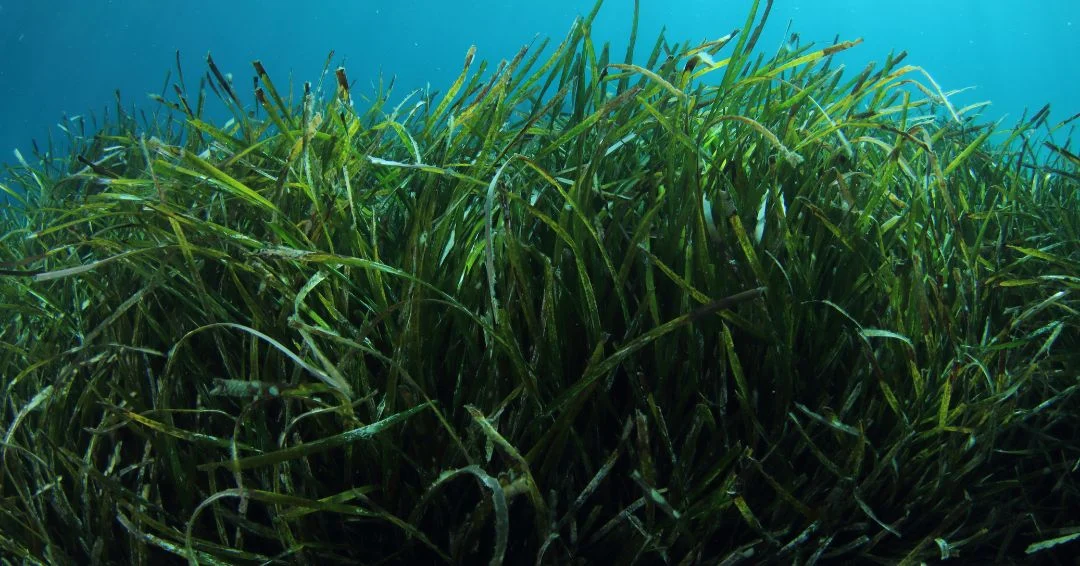
What can you do as a tourist?
Whether you are visiting Ibiza for a weekend or spending your holidays exploring the coves of Formentera, your actions matter. Here is how you can help:
- Never anchor your boat on posidonia. Use buoys or mooring fields specifically placed to avoid damaging seagrass beds.
- Avoid touching or removing posidonia from the beach. Washed-up leaves help prevent coastal erosion and are part of the natural ecosystem.
- Use eco-certified tour operators who follow environmental best practices.
- Do not litter. Take your waste with you, especially when visiting remote beaches or accessing the sea by boat.
- Reduce sunscreen pollution by choosing biodegradable products that are safe for marine life.
- Learn about posidonia and share its importance with others. Awareness is a powerful tool for change.
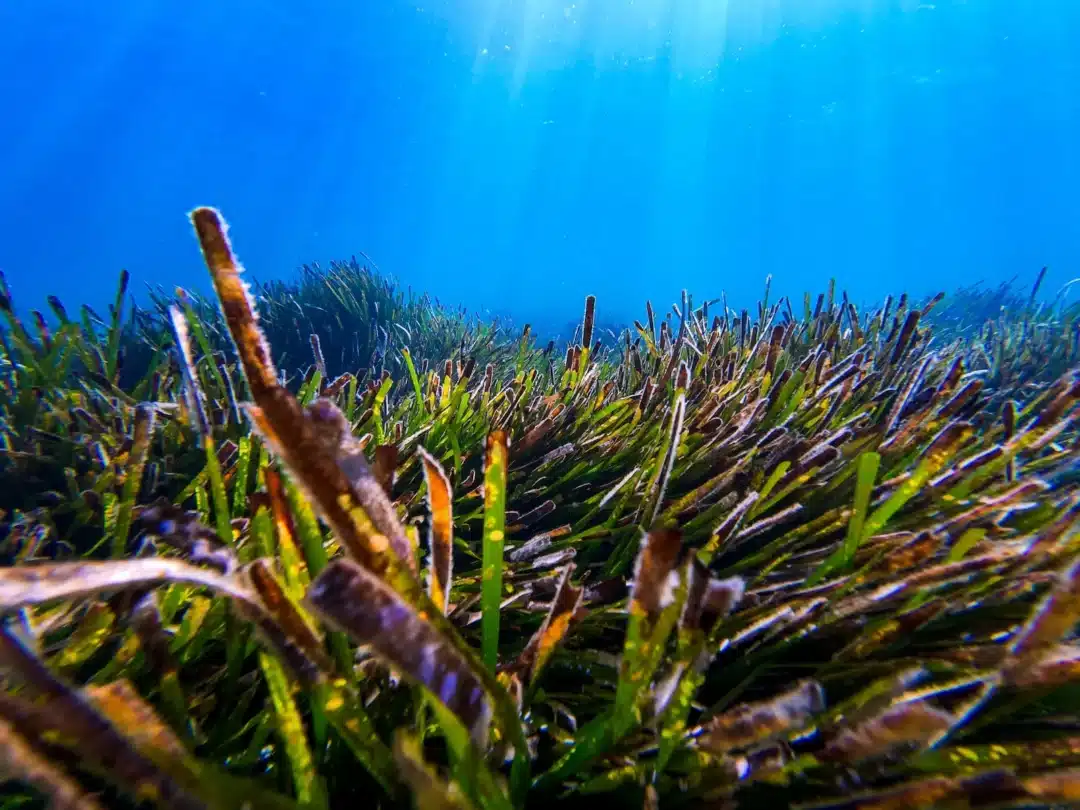
A collective responsibility
The Mediterranean is not just a beautiful backdrop, it is a living, breathing ecosystem that relies on ancient and fragile foundations. The survival of posidonia oceanica is essential not only for marine biodiversity but also for the future of tourism in the region.
By understanding the role of this underwater forest and taking small, conscious actions, you can be part of the solution. As you swim in crystal-clear waters or sail along the coast, remember that what lies beneath the surface is as important as the beauty you see above.
Let your visit to Ibiza or Formentera be more than a holiday. Let it be an act of respect and care for the sea that makes these islands so unforgettable.
